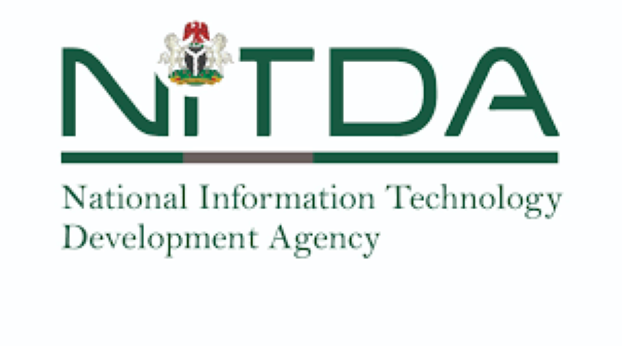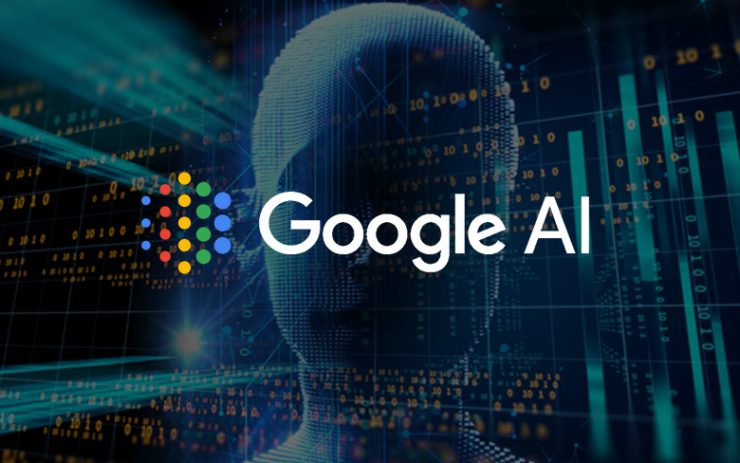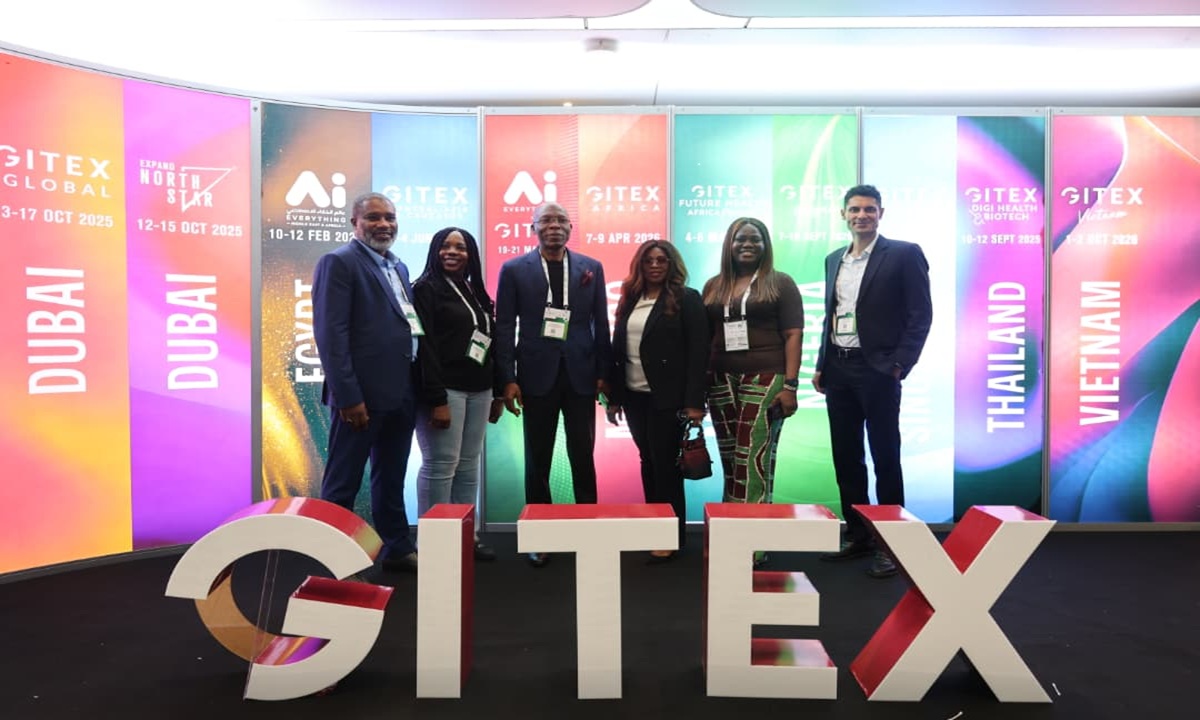E-Business
NITDA Puts Value of Outsourcing Sector in Nigeria @ $285M

Kashifu Inuwa Abdullahi, director general, the National Information Technology Development Agency (NITDA) has put the worth of Business Process Outsourcing (BPO) ecosystem in the country at $285.8Million.

He stated this at stakeholder engagement forum organised by NITDA and Federal Inland Revenue Service in Lagos.
According to Inuwa, “today, Nigeria Outsourcing sector worth $285.8M employing 16,540 Nigerians mostly living in Nigeria and working for companies outside Nigeria.
“We started in 2020 with a strategy and engaged with the Business Process Outsourcing (BPO) to develop the strategy and some of them started operations in the mid of 2020 and we want to expand this because we believe the sector will create more jobs than any other sector in Nigeria”.
He chronicled ICT performance between 2019 and 2022 and noted that the sector has out-performed oil and gas in terms of contributions to Gross Domestic Product of the economy.
“If you compare ICT performance to lucrative sector oil and Gas. ICT has out-performed that sector looking at it from 2019 to 2022.
“In 2019 ICT contributed 13 per cent to our GDP while Oil and Gas 8.7 per cent. In 2020 ICT contributed 15% Oil and Gas 8.2%. in 2021 because of COVID 19 recession there was a bit decline ICT 14.11% while Oil and Gas 7.3% still with the recession ICT contributed almost twice of contributions from Oil and Gas. Last year ICT contributed 16.6% to our GDP while Oil and Gas contributed 6.4%.
Speaking on challenges of ICT development, Inuwa stated: “We have limited infrastructure because ICT also needs infrastructure the way we construct social infrastructure such as roads, rail way and Aviation infrastructure.
“We also need to construct infrastructure for ICT for the 4th industrial revolution which is ICT driven, we need to have infrastructure everywhere, we need to connect the unconnected so that they will be part of this digital economy. If you are digitally invisible Artificial intelligence will not consider you while making decision. We need to include everybody by doing more in terms of infrastructure built out.
“We cannot survive without corporate, because you provide the funding for us. Nigeria is ranked the most vibrant ICT ecosystem in Africa”.
He said Nigeria has an estimated 3,360 start-ups operating in the country as at December 2022 which is almost 5 times more than the second largest start-up ecosystem in Africa which is Kenya.
“Nigeria is home to 5 out of 7 unicorns in the continent – a unicorn is a start-up with valuation of more than $1billion.
“All these are not by accident; they are by design because of the policies government has put in place using the levy corporates pay to us to execute those policies and regulations,” he added.
The Executive Chairman, Federal Inland Revenue Service (FIRS), Muhammad Nami in his keynote address commended NITDA for the introduction of technology in the tax collection and payment processes which he noted has positively impacted on taxpayers and government’s ability to deliver social goods, critical infrastructure and other necessary services.
Mr. Nami who was represented by the Service’s Lead, General Tax Operations Group, Kabiru Abba, revealed that FIRS collected and remitted the sum of N22,574,099,600.06 in 2022, and the total sum collected by FIRS on behalf of the Agency from 2008 to December 2022 is N168,847,118,268.22.
He said it is important to showcase the achievements of NITDA, particularly as taxpayers can easily make a connection between the taxes paid and its socio-economic impact which will also assist to improve voluntary compliance.
“FIRS, for instance is continuously implementing initiatives which are principally driven by the use of Information Technology and many of such initiatives have been successfully implemented including the recently introduced Electronic Tax Clearance Certificate (ETCC),” he added.
Nami further noted that NITDA collection has also shown a significant improvement as the highest collection recorded thus far was in 2022 at N22,574,099,600.06, affirming that FIRS is a key partner of NITDA, and the Service assists in the assessment, collection and accounting for the Agency’s revenue, as stated in section 16 of the NITDA Act (2007).
He also assured NITDA of continuous support to achieve its mandate, emphasising that the support is important as IT plays a vital role in the operations of the service in ensuring increased revenue for the nation.
E-Business
Nigerian Students Embrace AI as a Study Partner – Google

As students across Nigeria head back to school, new data from Google Search trends reveals a significant shift in study habits, with a massive turn towards Artificial Intelligence (AI) for academic support. Search interest for “AI + studying” surged by over 200% compared to 2024, highlighting how students are increasingly leveraging AI tools as a primary resource for learning.

This trend is part of a broader surge in AI curiosity in Nigeria. Search interest in AI reached an all-time high in 2025, growing by 60% over the past 12 months. Nigerians are not just asking what AI is, but how to use it to enhance their daily lives, particularly in education. The data shows a 60% increase in searches for “AI + lessons” over the past year.
AI Integration Across Academic Disciplines
Students are applying AI to a wide range of subjects. Over the last year, searches combining AI with specific school subjects have seen remarkable growth:
AI + Chemistry: increased by 50%
AI + Maths: increased by 30%
AI + Languages: increased by 30%
AI + Grammar: increased by 20%
The nature of these searches indicates that students are seeking practical help. Top searched questions for mathematics include, “what is the best AI in the world for solving mathematical problems” and “how to use AI to solve math problems.” Similarly, top searches for studying in general include queries for “AI tutor for students,” “free AI tools for studying,” and “useful AI prompts for studying,” showing a clear demand for accessible and specialized AI-powered educational tools.
Beyond the Classroom: Understanding AI and Preparing for the Future
The interest in AI extends beyond homework and exam preparation. There is a growing curiosity about the technology itself, with trending questions like “how to use ai” (+80%), “what is the full meaning of AI” (+80%), and “who is the father of ai” (+70%) all rising in the past year.
Significantly, as students use AI for their work, they are also becoming more aware of the ecosystem around it. Searches for “AI detection” have seen a massive 290% increase in the past 12 months, suggesting a growing conversation around academic integrity and the responsible use of AI tools.
Looking towards future careers, “Generative AI” was a breakout search term over the past 12 months, often appearing alongside searches for “professional certification.” This indicates that students and young professionals are not only using AI to succeed in their current studies but are also actively looking to build skills that will prepare them for the future workforce.
Olumide Balogun, West Africa Director at Google, said: “It’s inspiring to see Nigerian students so eagerly embrace AI to support their learning journeys. This back-to-school season, the data shows that students are not just using AI for answers, but as a tool to deepen their understanding of complex subjects, from chemistry to mathematics. This curiosity is key to fostering a new generation of innovators, and we are committed to providing tools that empower them to learn, grow, and succeed.”
E-Business
TD Africa and IBM Ignite Africa’s Tech Future @GITEX Nigeria 2025

TD Africa, Africa’s leading technology distributor, proudly participated in the just-concluded GITEX Nigeria 2025, held for the first time in the country from September 1st to 4th.

TD Africa
The exhibition, hosted at the Eko Hotel Convention Centre, brought together global tech leaders, professionals, and exhibitors showcasing innovations in AI, IoT, cybersecurity, fintech, and more.
In collaboration with IBM operated by MIBB, TD Africa demonstrated its commitment to empowering individuals and businesses across Africa through technology and innovation. Their joint presence at the exhibition drew significant attention from industry leaders, policymakers, and innovators alike.
One of the defining moments was the visit of the Governor of Lagos State, His Excellency Babajide Sanwo-Olu, to the TD Africa–IBM booth. Governor Sanwo-Olu was warmly received by Mrs. Chioma Ekeh, CEO of TD Africa, who highlighted the company’s impact and vision.
The Governor applauded TD Africa’s innovation, tenacity, and longevity in Africa’s technology ecosystem.
In her remarks, Mrs. Ekeh expressed gratitude for the Governor’s support and reiterated TD Africa’s unwavering commitment to advancing digital transformation across the continent: “It’s not a coincidence for GITEX to have taken place in Nigeria, as the world is becoming aware that this is where the energy of Africa collides with the ambition of the future.
“As long as TD Africa stands strong behind global brands like IBM and others we represent, we can only go further, stronger, and better.”
Also visiting the booth was the Minister of Communications, Innovation and Digital Economy, Dr. Bosun Tijani, who emphasised the importance of collaboration in shaping Africa’s digital future.
Adding to the momentum, Mr. Vishnu Taimni, General Manager of IBM operated by MIBB, stressed the need for sustained innovation and partnership: “Africa’s digital journey cannot be achieved in isolation.
“Our collaboration with TD Africa at GITEX is proof that when global expertise meets local strength, we unlock the future of technology for businesses, governments, and communities across the continent.”
The booth was further honoured by the presence of Dr. Leo Stan Ekeh, Chairman of Zinox Group, who commended TD Africa and IBM for their steadfastness and consistency in driving growth and innovation in Africa’s technology sector.
The successful participation of TD Africa at GITEX Nigeria 2025, in partnership with IBM, reinforces its position as a pillar of Africa’s digital transformation journey.
By standing strong with global partners and local stakeholders, TD Africa continues to shape the future of technology in Africa, driven by resilience, innovation, and impact.
E-Business
Report Shows Attacks on Smartphones Increased in the First Half of 2025

According to Kaspersky data, there were 29% more attacks on Android smartphone users in the first half of 2025 compared to the first half of 2024, and 48% more compared to the second half of 2024.

In 2025, Kaspersky detected prominent mobile threats such as SparkCat, SparkKitty and Triada, but there were other active threats as well, including apps with adult content that could launch DDoS attacks and a VPN app that intercepted login codes sent through text messages.
In the second quarter of 2025, attackers embedded functionality for dynamically configured DDoS attacks into applications for viewing adult content. This trojan enables sending specific data from the infected device to the attackers at specified time intervals.
Kaspersky also recently detected a fake VPN client that hijacks different user accounts: instead of providing the declared functionality, it intercepts one-time password codes from various messengers and social networks by monitoring notifications and sends them to the attackers via a Telegram bot.
The most popular malicious apps
Malicious apps that mobile users most frequently encountered were Fakemoney scam applications, banking trojans and preinstalled malware.
Fakemoney scam apps on smartphones are fraudulent applications that deceive users into believing they can earn real money or rewards through tasks, games or investments, but then steal personal information, money or deliver no actual payouts.
Pre-installed trojans like Triada and Dwphon were also frequently detected. These are examples of malicious software embedded in the firmware of Android devices during manufacturing, enabling data theft, unauthorised actions and persistence even after factory resets.
Mobile banking trojans
The number of mobile banking trojans detected in the first half of 2025 is almost four times more than in the first half of 2024 and over two times more than in the second half of 2024.
“The first half of 2025 saw a surge in Android malware attacks compared to 2024. There are different attack vectors, and sideloading apps from outside app stores is one of them. Google’s recent initiative to verify developers even for sideloaded apps is an attempt to counter malware spread via APK files outside official app stores.
“However, this step is not a silver bullet. Malware continues to infiltrate even the Google Play Store, where developer verification has long been in effect. Malware infiltrates Apple’s AppStore as well. Attackers will likely find ways to bypass verification, that underscores the need for users to combine robust security solutions, cautious app sourcing and regular OS updates to stay ahead of evolving threats,” comments Anton Kivva, Malware Analyst Team Lead at Kaspersky.

 Telecom3 days ago
Telecom3 days agoMTN to Shut Down 2G, 3G Services in Ghana

 News3 days ago
News3 days agoZinox, KongaCares Launch 1m Laptop Drive to Transform Nigerian Schools

 E-Business3 days ago
E-Business3 days agoFirm Warns of a New Credential-stealing Campaign via Facebook

 E-Financial3 days ago
E-Financial3 days agoNOA Urges Nigerians to Reclaim N190Bn Unclaimed Dividends

 News3 days ago
News3 days agoTUC Labels 5 Percent Tax on Petroleum Products ‘Economic Wickedness’, Threatens Strike

 E-Financial3 days ago
E-Financial3 days agoPalmPay Champions Trust, Local Partnerships at GITEX Nigeria 2025

 General News3 days ago
General News3 days agoAfrinvest Marks 30 Years, to Unveil 20th Banking Sector Report

 General News3 days ago
General News3 days agoKeyamo Orders NCAA to Name, Shame Airlines over Breach of Aviation Rules

























